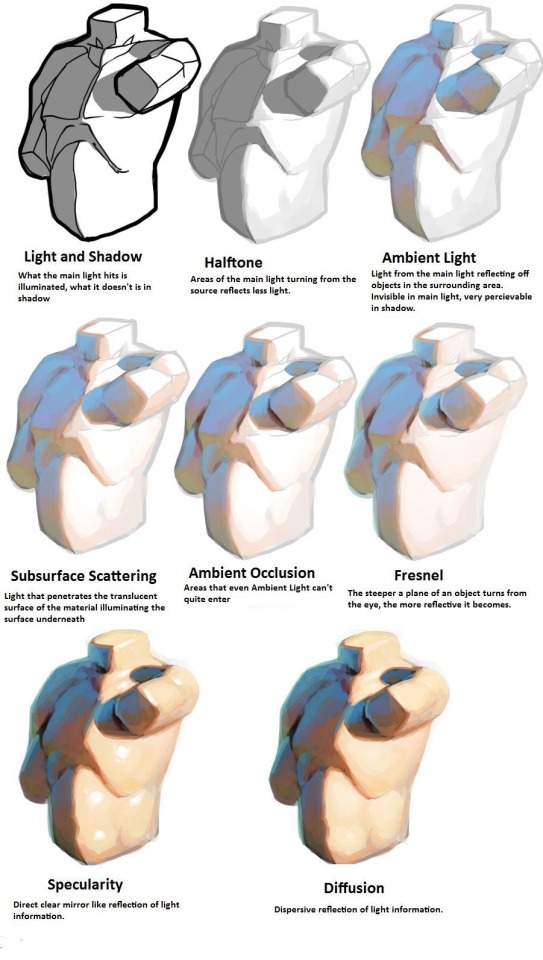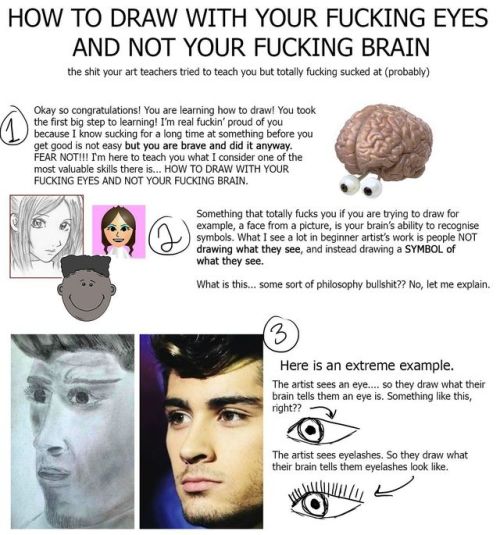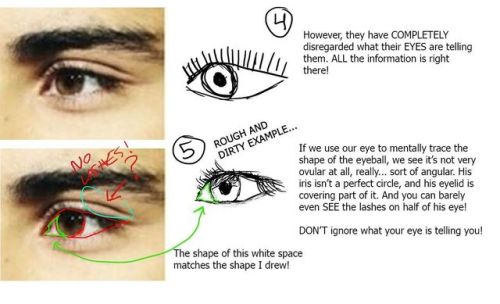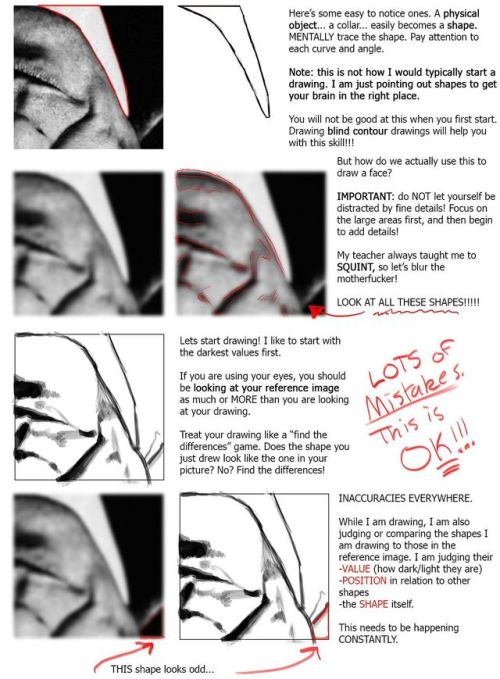98 posts
Yes-i-can-read-why-do-you-ask - Letters - Tumblr Blog
why you should read “the master and margarita” by mikhail bulgakov
1930s moscow in which satan messes around
there’s a scene of a party in which various animals like zebras are running around in a villa and this scene is based on an actual event
one of the characters is a big black talking cat that loves vodka and poker and sometimes turns into a human
there is a ginger vampire-witch queen who is always naked and rides her broom around to mess up places
her name is hella and i am sure she is bisexual
critics aren’t even sure what this book is about and there are at least ten different interpretations
“’you can’t eat tiger meat,’ said hella.”
good types of alone time:
“decadence”
rewatch pride & prejudice (2005 or 1995, your pick)
take a long shower & shave legs
stare at face in mirror for a long time, reflect on changes that have occured in past year
sara bareilles cd on repeat
“deep mystery”
lying on the floor listening to music you liked fifteen years ago
watch dust motes travel across the room in the late afternoon haze
what would be different about my life if i had been a cheerleader in high school?
what was the title of that book you read in the fourth grade? you only remember the main character’s name and nothing about the plot. you spend the next three hours googling and then you drop $60 for a first edition on ebay
cup of tea, then another
are you there god?
“efficiency”
take out five boxes of paperwork from the closet and spend the next three hours making small piles around your body on the floor
write first chapter of novel
cover wall in post it notes
lists lists lists
highlight everything
now’s a good time to start that bullet journal
must empty email inbox
plan out next five years of life down to the month, week, day
“shake it up”
blast nsync while scrubbing out microwave
rearrange living room four different ways
today’s a good day to repaint your bedroom
let’s research and plan a trip to san francisco
develop new fashion style, must throw away all items of clothes that don’t work with it
“rain day”
light candle, open windows, put on sweater
reread old favorite book
pet a cat
listen to jewel cd
becoming vegan because factory farming is unethical is like deciding that since walmart and amazon mistreat their employees you are now going to get everything you need out of dumpsters
“In one experiment, mothers were asked to guess the steepness of a carpeted slope that their 11-month olds would be able to crawl. Then the children actually crawled the slope, and the difference between actual and mother-predicted angles was noted. The results showed that both boys and girls were able to crawl the same degree of incline. However, the predictions of the mothers were correct within one degree for the boys and underestimated their daughter’s ability by nine degrees. What this shows is that the presumption that boys are more physical causes parents to encourage their boys more in physical activities while cautioning their girls. This further translates into providing more opportunities for boys to be physical and fewer for girls. The result? Boys actually do develop stronger physical skills than girls. But not because of anything innate or biological, but rather because of the gender roles that the parents subconsciously projected onto their babies.”
—
Gender Neutral Parenting: 5 Ways To Avoid Implicit Sexism (via Everyday Feminism)
The experiment mentioned is available in full HERE.
(via notes-on-intersectional-feminism)
“Can everybody hear me?”
Presenters often open by asking “Can everybody hear me?” or “Can everyone hear me without the microphone?”
This isn’t a very effective way to find out if everyone can hear you. It feels like asking, but it isn’t really — because it doesn’t usually give people the opportunity to say no.
If you want to know if everyone can hear you, this way of asking works better:
First, ask if everyone can hear you. This will get the attention of the people who can.
Next, ask everyone “Can the person next to you hear me?”
Wait 7 seconds for people to ask each other
Next, say, “Raise your hand if you or someone near you needs me to talk louder or use the microphone.”
Wait at least 7 seconds before moving on.
(7 seconds feels really long as a presenter. It helps to literally count silently to yourself).
Asking this way solves two problems:
It makes it easier for people to hear the question:
If someone can’t hear you well, they may not hear “Can everybody hear me?”
This can give you the misleading impression that everyone can hear you.
When you ask, “Can everybody hear me?” the people who can, tend to respond “yes” immediately
The people who *can’t* hear you well, often don’t hear the question.
Or they may not understand what you’ve said until you’ve already moved on.
But they probably *can* hear people who are close to them talking to them directly.
Asking “can the person next to you hear me?” makes it more likely that people who can’t hear you will understand the question.
It makes it easier for people to respond to the question:
Saying “Can everybody hear me?” or “Can everyone hear me without the microphone?” *feels* like asking, but often it really isn’t.
The problem is that asking that way doesn’t give people an obvious socially acceptable way to respond.
So in order for people to say “I can’t hear you” or “I need you to use the microphone”, they have to interrupt you.
Which feels like a conflict, and most people don’t want to go into a presentation and immediately have a conflict with the presenter.
It also makes them have to identify themselves as having an inconvenient impairment in front of the whole group.
That’s uncomfortable on a number of levels, and may be actively frightening.
Not everyone is going to be willing or able to interrupt you or take risks.
Even when people are willing, it’s still anxiety provoking in a way that’s likely to make your presentation less comfortable and effective
Giving people a clear way to respond gets you better information, and helps you to build a better rapport with your audience
(And doing it in the specific way I suggest makes it possible for people to let you know they can’t hear you without having to interrupt you, identify themselves to you, or identify themselves to the whole group.)
Tl;dr If you’re giving a presentation, asking “Can everyone hear me?” probably won’t result in people who can’t hear you telling you so. Scroll up for more detailed information about a more effective approach and why it works better.
In science fiction, AIs tend to malfunction due to some technicality of logic, such as that business with the laws of robotics and an AI reaching a dramatic, ironic conclusion.
Content regulation algorithms tell me that sci-fi authors are overly generous in these depictions.
“Why did cop bot arrest that nice elderly woman?”
“It insists she’s the mafia.”
“It thinks she’s in the mafia?”
“No. It thinks she’s an entire crime family. It filled out paperwork for multiple separate arrests after bringing her in.”

Long read, very very interesting.



I am so serious when I say if you want to learn about light, you NEED to at least look at modeseven’s tutorials. even if you’re not pursuing a painterly style, this is all essential theory that can be easily adapted to different coloring styles. notice how none of these ever say ‘light with these colors and shade with these colors’? notice how this is teaching how light works on a mechanical level, and reminding the audience to adjust the actual colors they choose by context? THAT is good advice.
(if you’re thinking ‘wow I want to study more of this persons art!’ I encourage you to do so, but proceed with the knowledge that modeseven draws pretty much exclusively weird as hell kink art. sometimes wisdom comes from horny places)
Sometimes I’m looking for something online - often “how to” articles - and I want to filter for - like - a website that was clearly built in 2010 at the latest, which may or may not have been updated since then, but contains a vast wealth of information on one topic, painstakingly organized by an unknown legend in the field with decades’ worth of experience. I don’t want a listicle with a nice stolen picture in a slideshow format written by a content aggregator that God forgot. I want hand-drawn diagrams by some genius professor who doesn’t understand SEO at all, but understands making stir-fries or raising stick insects better than anyone else on this earth. I don’t know what search settings to put into Google to get this.
I suspect quite a few people on this site don’t realize they are struggling with the effects of chronic trauma. In particular I think more people need to learn about the symptoms of C-PTSD.
Distinct from general PTSD, Complex PTSD is caused by prolonged, recurring stress and trauma, often occurring in childhood & adolescence over an extended period of time. There are many risk factors, including: abusive/negligent caregivers, dysfunctional family life, untreated mental/chronic illness, and being the target of bullying/social alienation.
I’m not a mental health professional and I’m not qualified to diagnose anyone, I just remember a million watt light bulb going off in my head when I first learned about C-PTSD. It was a huge OH MY FUCKING WORD eureka moment for me—it explained all these problems I was confused and angry at myself for having. The symptoms that really stood out to me were:
Negative self-perception: deep-seated feelings of shame, guilt, worthlessness, helplessness, and stigma. Feeling like you are different from everyone else, like something is fundamentally ‘bad’ or ‘wrong’ with you.
Emotional avoidance of topics, people, relationships, activities, places, things etc that might cause uncomfortable emotions such as shame, fear, or sadness. Can lead to self-isolation.
Learned helplessness: a pervasive sense of powerlessness, often combined with feelings of desensitization, wherein you gradually stop trying to escape or prevent your own suffering, even when opportunities exist. May manifest as self-neglect or self-sabotage. (I remember watching myself make bad choices and neglect my responsibilities, and having no idea why I was doing it, or how to stop myself. Eventually I just stopped caring, which led to more self-neglect.)
Hyper-vigilance: always feeling “on edge,” alert, unable to relax even in spaces that should feel safe. May be combined with an elevated “flight” response, or feelings of always being prepared to flee. (I used to hide important documents and possessions in a sort of emergency go bag, even when I was living alone and there was no logical reason other than it made me feel “prepared.”)
Difficulty regulating emotions: may include mood swings, persistent numbness, sadness, suicidal idealization, explosive anger (or inability to feel anger and other strong emotions), inability to control your emotions, confusion about why you react the way you do.
Sense of foreshortened future: assuming or feeling that you will die young. Recurring thoughts that “I’ll be dead before the age of 30/40/18/21 etc.” As a teenager I used to joke darkly that I didn’t plan to live past 30—not because I planned to end my life, but because I simply couldn’t imagine myself alive and happy in the long-term. I couldn’t imagine a meaningful future where I wasn’t suffering.
Emotional flashbacks: finding yourself suddenly re-experiencing feelings of helplessness, panic, despair, or anger etc, often without understanding what has triggered these feelings. Often these flashbacks don’t clearly relate to the memory of a single event (since C-PTSD is caused by repetitive events, which can blur together), making them harder to identify as flashbacks—especially if you’ve never heard the phrase “emotional flashback” and don’t know what to look for. For years I just filed it under “sometimes I overreact/freak out randomly for no reason, probably bc I am just a terrible human being.” (It turns out there was very much a reason, it was just hidden in the past. I have since learned to be kinder and less judgemental towards myself.)
There are other symptoms too, here are more links with good info.
I’ve been meaning to write this post for awhile, because I’ve noticed that a lot of the people I interact with online have risk factors and experiences similar to mine. These include:
growing up in a dysfunctional household
having caregivers who do not fulfill basic emotional needs (do not provide consistent positive attention, encouragement, support, acceptance, communication, a sense of safety and security)
on a very related note, experiencing neglect or abuse at the hand of caregivers or other adults. I also want to emphasize the significance of emotional abuse, since it is hard to recognize, easy to ignore, and utterly rampant in so many communities. In general, family dysfunction, abuse & neglect are quite difficult to identify when you are a child/teen and that is the only “normal” you have known.
(For example, in my family it manifested as an emotionally absent father I was vaguely frightened of, constant nagging from a hypercritical mother, and a house full of people who yelled and screamed at each other. It took me years to realize I grew up in an abusive environment, because there was no physical violence, because I participated in the fighting, and because my behavioral problems made me the family scapegoat. And I internalized that guilt: I thought I was the problem. But no—I was a child, and I deserved not to grow up in a household full of anger and fear and negativity. You deserved that too. You deserved to grow up safe and loved and treated with kindness.)
anyway back to more risk factors:
being neurodivergent or chronically ill (especially without receiving proper treatment/support/accommodation)
being queer (especially in a conservative or undiverse community, or without the support and acceptance of family & friends)
being the target of bullying or harassment (from peers, teachers, authority figures, irl, online, etc)
being isolated or alienated from peers, from family, from your wider community.
growing up with chronic anxiety, discomfort, pain, fear, or distress caused by any of the above and more.
There are many other experiences that can cause chronic trauma, but these are some particularly common ones I see people in my own community struggling with. And I want more people to be aware of this, because we’ve been taught to ignore and second-guess the significance of our traumatic experiences. We’ve been taught to feel guilty for our own pain, because “other people aren’t struggling, so I shouldn’t either” or (contradictorily) “other people have it worse, so I shouldn’t complain.” But that’s not how it works—you are not other people, and you deserve to have it better. We all deserve better. We deserve to be happy. We deserve not to be in pain.
I used to think I couldn’t have a trauma disorder because (I argued in my head) the things that happened to me weren’t that bad. And then I spent five years in therapy learning to accept the full extent of my issues. I’ve since learned that trauma comes in many forms, and can happen quietly, invisibly, silently, chronically, and usually without the survivor being aware of the long-term repercussions of what they are surviving. That revelation comes later, after you have survived and must instead learn to live.
Finally, no single type of trauma is more real or harmful than any other. Severity is measured by the way the individual is affected, and the same situations affect different people in different ways. Because no one gets to choose how their brain reacts to trauma. No one gets to choose their hurt—otherwise there would be a hell of a lot less hurting in the world.
We can, however, choose to seek help. We can learn to recognize when something is wrong, we can learn when to reach out to professionals, and we can learn to educate ourselves on our injuries.
And gradually, we can learn to heal.
ko-fi
if any of you guys are interested in giffing or well just p1rating I'm compiling a list of free resources i use on my edits (video+programs+assets+non edit stuff) and like my general presence because piracy is always moral and right
how dare you question the amazing method of farming that gives us so much food by simply killing the soil and leaving lands barren without maintaining the resources that make it work in the first place.
last year i got 1800 bushels of corn by killing the soil, as opposed to before when i only got 1200 by not killing the soil. surely i can simply keep killing more soil
The first few semesters of a Bachelor's in Psychology are spent learning about experiments from before the invention of research ethics and going "Holy SHIT, what made them think that was okay?!"
That feels like the era of history computer science is currently going through.
No ethics guidelines! No review boards! Just violate people's privacy and automate society's biases. YOLO.
Imagine if you met someone who can't eat watermelon. Not that they're allergic or unable somehow, but they just haven't figured out how to do that. So you're like "what the hell do you mean? it works just like eating anything else, you open your mouth, sink your teeth in, take a bite and chew. If you can bite, chew and swallow, you should be able to eat a watermelon."
And they agree that yes, they do know how to eat, in theory. The problem is the watermelon. Surely, if they figured out where to start, they'd figure out how to do it, but they have no clue how to get started with it.
This goes back and forth. No, it's not an emotional issue, they're not afraid of the watermelon. They can eat any other fruit, other sweet things, and other watery things ("it's watery?" they ask you). Is it the colour? Do they have a problem eating things that are green on the outside and red on the inside?
"It's red on the inside?"
Wait, they've never seen the inside? At this point you have to ask them how, exactly, they eat the watermelon. So to demonstrate, they take a whole, round, uncut watermelon, and try to bite straight into it. Even if they could bite through the crust, there's no way to get human jaws around it.
"Oh, you're supposed to cut it first. You cut the crust open and only chew through the insides."
And they had no idea. All their life this person has had no idea how to eat a watermelon, despite of being told again and again and again that it's easy, it's ridiculous to struggle with something so simple, there's no way that someone just can't eat a watermelon, how can you even mange to be bad at something as fucking simple as eating watermelon.
If someone can't do something after being repeatedly told to "just do it", there might be some key component missing that one side has no idea about, and the other side assumed was so obvious it goes without mention.
ADHD reward system? Please tell me your secret!
My therapist has been helping me find a reward system that works for me, and as it turns out, gold star stickers are really helpful for making me feel like a tangible goal was met, and helps give me that sweet, sweet dopamine release that comes with completing a task, something which us ADHD’ers really struggle to achieve and are already coming at from a disadvantage with our brains regularly not producing enough “happy” hormones as it is.
It was supposed to be “a sticker for every time you finish a chapter”, but after some revision, my therapist said that was too tall of a goal, and that I should pick something smaller. So instead I now get a star every time I finish a 500-word milestone, placing the sticker in my writing calendar/journal thing that I use to keep track of my writing, and ironically, I have started to produce more work than when I was stiving for one chapter a day.
To give you an idea of how staggeringly effective this has been for me, I’ve written over 30k of original fiction in the last week. (75k total if you include my social media and blog stuff, which I currently do not but likely should.)
So this is what it looked like when I was attempting to do a chapter of edits and revisions a day during the month of December 2019 (note: I was supposed to start this in Nov, so you can see how well that worked out for me lol):

ID: A calendar showing days of the month with a shiny star sticker showing a completed task.
And this is what my writing journal looks like now that I’m doing a star for every 500 words:

ID: an image of a handwritten journal with the dates mapped out, followed by a shiny star sticker for every completed 500-word milestone. There are 65 stars in total for the month of January 2020. It’s also tinged by a green light cause I’m doing a chronic pain experiment, so far with positive results!
So as of today, January 8th, with ever star = 500 words, then 65*500 = 32500 words totalled in 7 days. This does not include, like I said, my social media output where I am far more productive, this is just my fiction and some editing work for friends.
(Which side note: this is not to flex, or to say that others should be able to achieve this level of output. I am a professional writer, this is my main job and only source of income. And also, I was forged in the fires of understaffed editing hell where we would be expected to churn out 100k+ a week in edits and revisions to keep on track. I have the time and a learned skillset I have spent years amassing to be able to do this and am working towards a rigid deadline. I simply have not been healthy enough in a long time to manage it, and am finally working my way back up to speed after years of illness. Don’t look at this and think, “I’m not achieving enough”, every victory no matter how small is worth celebrating. And I say that with the utmost sincerity, as someone who spent most of the last 2-3 years unable to get out of bed.)
I’ve also started using it to help keep track of bills and chores around the home. So every time something gets done/done on time, whoever completed the task gets a star on the calendar. This includes Oppy the Not-A-Roomba, who does a very good job of taking care of the house on a daily basis:

ID: an image of a chore calendar denoting various tasks that have been marked off with a holographic silver star sticker, including our robot vacuum who does an excellent job and deserves all the stars. (Our names got blurred out cause ETD doesn’t want his real name out there in the world, so that’s what is blurry.)
This system is useful for several reasons, the primary one being a sense of achievement and continued motivation, and the second, to allow you to review each month to see where you are doing well, and where you might otherwise be struggling.
For example, if I have a bad day for writing or decide to take a day off, I write that down in the calendar rather than leaving it blank, so that I have a record of what went wrong (or right, if I am electing to self care that day and take a day off) and how my overall progress is doing.
In terms of house stuff, this has been especially useful for ETD and myself, as it shows us where we are managing to do a good job with the house, and where our executive dysnfunction issues really trip us up and where we need to make improvements. And I don’t just mean in an “I should try harder way”, I mean you have to actively sit down and be like “hey! What is preventing me from completing this thing” and trying to figure out effective ways to either get around it or resolve a larger issue at hand.
So for us, the biggest thing we tend to miss is doing dishes after dinner, meaning we get left with a pile-up of dishes to deal with first thing in the morning, and my ADHD can’t handle that. It won’t let me eat until I’ve cleared all the mess, but I usually don’t have the energy to clean up if I haven’t eaten, so it’s this awful cycle of ineptitude. We’re doing better with the star reward system, cause it’s showing us our progress loud and clear on the fridge door, but we are both usually so fatigued and exhausted by the end of dinner that doing dishes is just one thing too many for our mutual disorders. So, the solution for this would, of course, be a dishwasher, cause if we had one of those, we could load stuff in, turn it on, and let those dishes get done while we go to bed then put them away in the morning. We can’t afford to do that right now, and we have other appliances we need to buy/replace before we can do that (still don’t have a tumble dryer, or a washer I can access, rip) but it does give us a tangible goal to work toward, and also, the motivation to keep on top of things because it goes from “an endless task with no end in sight” to “there’s a solution for this, we can manage a while longer.”
Now you could be saying, but Joy, I’m an adult! Surely I shouldn’t expect rewards for completing every day tasks that I should be able to do?!
To which I say, neurotypical people get rewards all the time and get an unconscious dose of dopamine/serotonin from their brains every time they complete a task. They’re playing the game of life on easy mode, the gold star is your achievement for completing it daily on Nintendo 99 hard mode. IF THE STICKER WORKS, TAKE THE STICKER
YOU’VE EARNED IT.
the difference between romantic love and platonic love is mostly intent
my favorite genre is “kitchen sink” tbqh. yes i want your metaphysical space opera Gothic haunted house horror-comedy. yes i want your medieval road trip heist mystery. give me time traveling werewolves and noir detective robots teaming up to fight alien supervillains. i want this sundae with every topping in the shop
here’s the thing, which is that dracula 1992 is such a good-intentions-bad-execution adaptation of the book, while also somehow being the best adaptation of the book out there, and also extremely horny in a way I can’t help but grudgingly respect.









